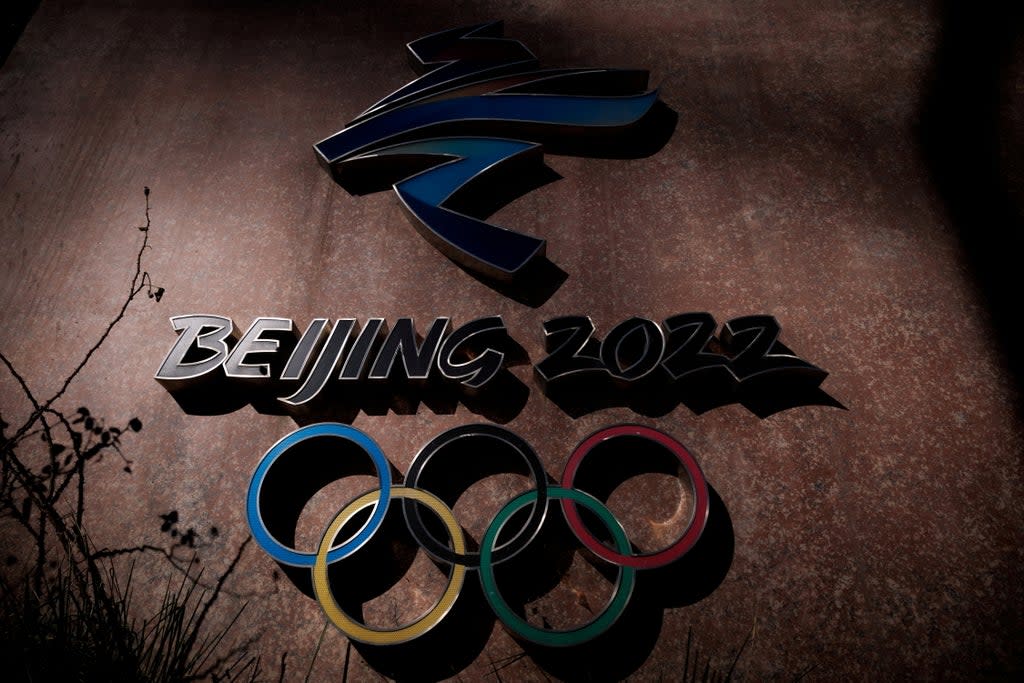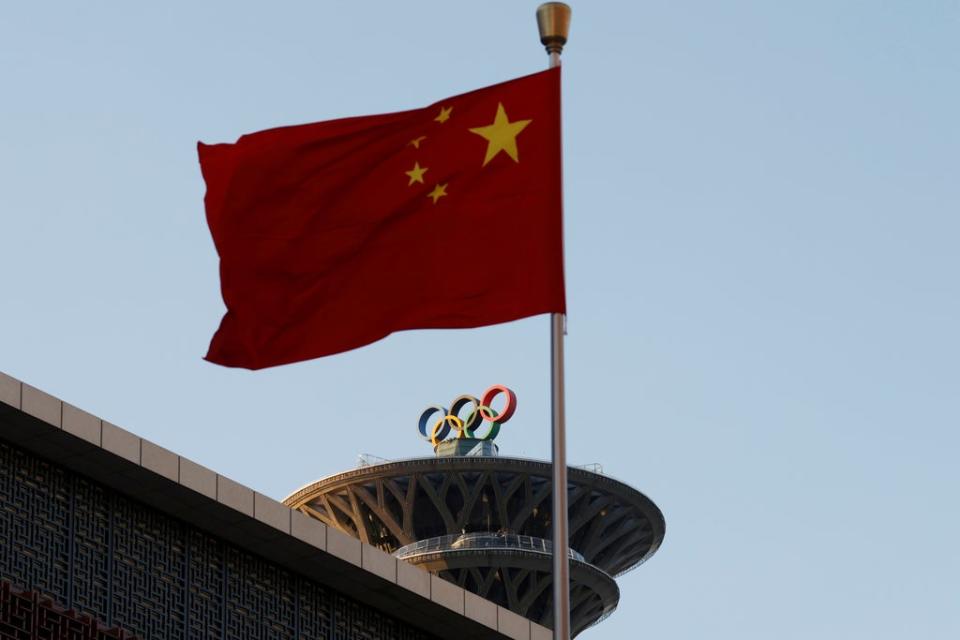How Biden’s ‘symbolic’ Winter Olympics snub was designed to avoid China’s wrath

When then-US President George W Bush posed for a picture with the Chinese baseball team at the 2008 Summer Olympics in Beijing, China was a rising power seeking international recognition and better relations with Washington.
While China won the most gold medals, it was remarkable to witness former Chinese Premier Wen Jiabao congratulate the US for topping the overall tally.
As Beijing prepares to host the 2022 Winter Olympics in February, circumstances have changed entirely.
The administration of US President Joe Biden on Monday announced a diplomatic boycott of the Games, citing “ongoing genocide and crimes against humanity in Xinjiang, and other rights abuses”. The pullout of government officials is intended to send a clear message to China on the international stage without restricting the participation of US athletes.
Key Western allies - including Australia, the UK, and Japan - are hesitating as they decide whether to follow the example of the US.
Beijing said the boycott was a “clear violation of the Olympic spirit” and that the US would “pay a price”. China’s foreign ministry said countermeasures would be taken, but did not provide any further details.
So there will be no sequel to the 2008 photo op involving Mr Bush.
As White House press secretary Jen Psaki said: “We will not be contributing to the fanfare of the Games.”
The 2008 Games was preceded by calls for a US boycott over China’s widespread repressive policies in Tibet.
At that time, Washington held the upper hand in relations with Beijing, and sought to contain China’s growth on the international stage while simultaneously encouraging it to be more democratic.

But the US seems to have lost all patience with China’s deepening authoritarianism since President Xi Jinping’s took power in 2013.
“First, the wording of the White House statement was actually fairly hard-hitting and to the point,” said Jonathan Grix, professor of sports politics and diplomacy at Manchester Metropolitan University.
“This shows us that Biden is bowing to internal pressure for action but has done so through what amounts to a ‘symbolic’ gesture aimed to not completely derail relations with China,” he told The Independent.
Both US Democrats and Republicans have lost any hope about a meaningful shift from the Communist Party of China (CCP)’s repressive policies.
Just as Donald Trump’s White House did previously, the Biden administration has been consistent in chastising China’s crackdown on democracy in Hong Kong, the detention of more than a million Muslim Uyghurs in camps in Xinjiang, and other rights issues.
The boycott will send a symbolic message that the US will not lend legitimacy to China’s soft power fanfare, according to analysts who say it was designed and worded in such a way to avoid undermining a long-term goal of improving engagement with Beijing.
“It does show that the Biden Administration is doing what it thinks needs to be done in as non-provocative way as possible,” said Steve Tsang, director of the China Institute at SOAS University.
Former US Secretary of State Mike Pompeo said on Twitter that the diplomatic boycott did not go far enough.
“The CCP doesn’t give a rip about a diplomatic boycott, because, at the end of the day, they are still hosting the world’s athletes,” he tweeted. “Joe Biden needs to stand up to the CCP.”
Mr Biden’s diplomatic boycott enjoys sweeping bipartisan support, despite Republicans calling for a full boycott, which would have also included athletes. The last time the US staged a full Olympics boycott was the 1980 Moscow Games, in response to the Soviet invasion of Afghanistan the previous year.
“The boycott will be embarrassing to Xi and his administration, in a politically sensitive year”
Steve Tsang, director of the China Institute at SOAS University
But this approach carries its own risks, threatening to push US-China relations back to square one and harm their chances of engaging on global issues such as climate change, the recovery of the world economy from the pandemic, and nuclear proliferation.
“Being unnecessary provocative will not help with having a working relationship with the most important country that the US has to deal with, whatever the latter’s human rights records,” Mr Tsang said.
China’s leaders see the Olympic Games as an opportunity to assert their new position on the world stage as a superpower, and for other countries to recognise it thus, especially on an official level.
That would be a win for Mr Xi, who would like to portray to his domestic audience that the US’ measures over human rights issues do not reflect the true nature of the relationship.
Mr Xi counts on the Games as a chance both to polish China’s image abroad and convenes extensive diplomatic interactions on the sidelines. The event will also serve as a stepping stone to a third term in office, which is expected to be ratified in the CCP 20th Party Congress in the second half of 2022.
But the US diplomatic boycott could prove a thorn in Mr Xi’s plans, especially if a significant number of other nations followed suit.

“It will weaken Xi a little within the CCP as not all in the Party wants him to have a third term, effectively allowing him to be leader for life,” Mr Tsnag said.
“It will also be embarrassing to him and his administration, in a politically sensitive year for Xi, as he wants to show he is very successful and globally admired as he makes himself leader for life in the autumn next year.”
The timing of boycott is sensitive and will force other countries to choose between the US and China, as many governments prepare for the major and much-publicised US-led summit on democracy this month.
“The ‘real’ benefit (from the diplomatic boycott) to the Biden administration is to appease domestic calls for action, boost Biden’s hosting of the ‘Summit of Democracy’ in a few days’ time and signal that they take human rights seriously,” Mr Grix said.
This means Mr Biden’s approach to China’s Olympic Games is based on calculations barely aimed at exerting significant pressure to force Beijing to improve its human rights record.
And this will be reflected in how far China will be willing to go in retaliation.
“The fact that the US are ‘100%’ behind sending their athletes to the Winter Olympics means that this symbolic act may well elicit a symbolic response,” Mr Grix said.
Read More
US violating Olympic spirit and will ‘pay price’ for Beijing boycott, China says
White House confirms full boycott of Beijing Olympics despite China threat of ‘firm countermeasures’
China's communists bash US democracy before Biden summit
Beijing Winter Olympics: What does a diplomatic boycott achieve?
Lithuania says China has told multinationals to boycott Vilnius over Taiwan row
China detects second omicron case in 67-year-old overseas traveller


